Chapters.
How to cope with the passing of time? Break it down!
How are we all doing?
Sorry I've not been manning the hatch as diligently as normal, but it's summer, and there's a lot going on. Case in point, I was recently down in the Southwest of the UK visiting the city where I spent my university years, Plymouth.
It's a strange experience revisiting a place that feels so personal to me, but that I'm now quite divorced from. I had a glorious three years in that city, and to plunge headlong into the cliché, it kind of made me the man I am today. I did a lot of growing up, made a lot of friends, and it was a perfect scale-up from the small town life I had grown up with. But to revisit it twenty-odd years later, I understand a little why it's derided by some. The best way to describe this would be that considering a huge amount of my time there was spent drinking (it was the early 2000s), I now couldn't tell you (as a non-student), where to get a nice drink. And I don't mean that I'm unfamiliar, I just don't know which pub I could genuinely recommend.
Now, I had a lovely few days there, I hiked the coast, had a swim, saw a slow worm, and generally just enjoyed a bit of quality downtime. So I'm not being down on the place at all, but I was aware that my life there is a completed chapter.
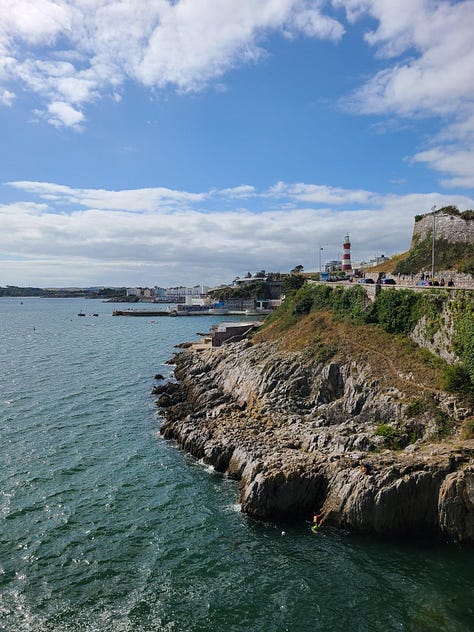
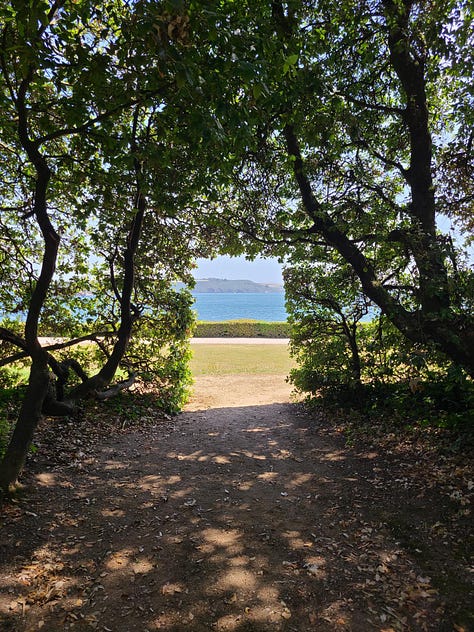

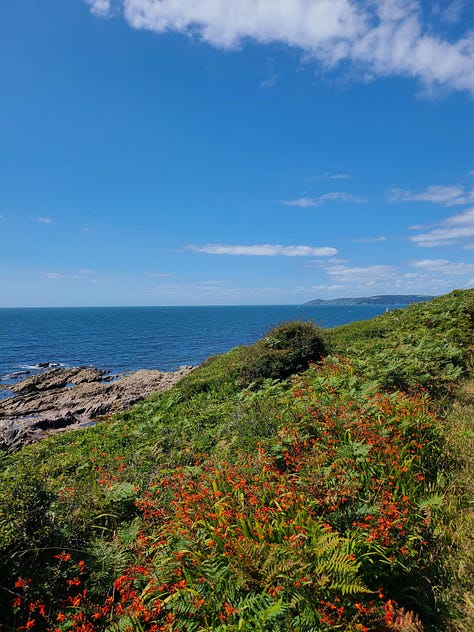
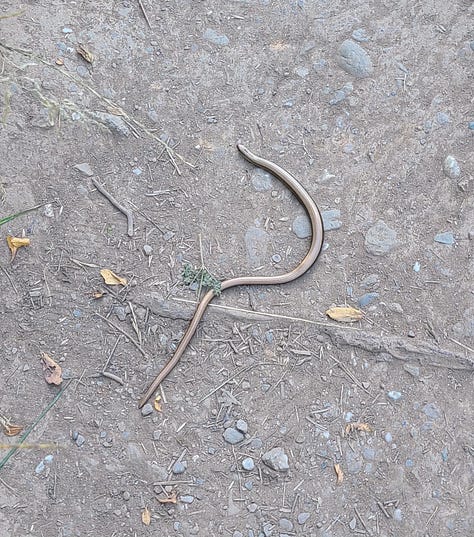
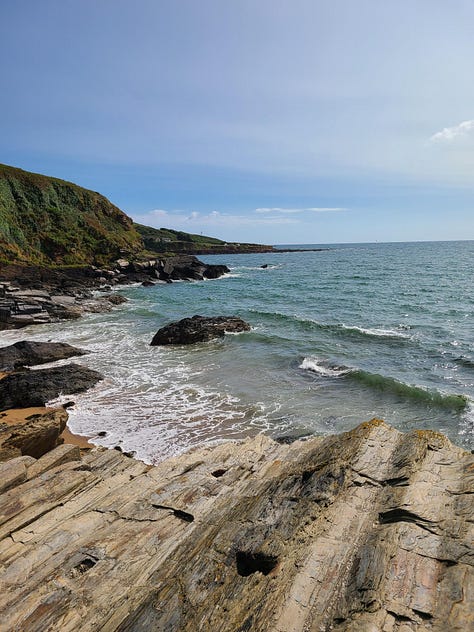
I'm a big fan of chapters. Last summer I was lamenting the fact that life rattles past and you can‘t fit in all the things you want to, because days are finite, so you just have to choose what is taking priority at any given moment. But the bigger picture, or getting a handle on what I’ve I done with my life, or indeed the last five years, benefits from defining some parameters.
Some of these chapters are clearly delineated, like my stint at Plymouth, which had a beginning and an end, and I know the dates and can refer back to them. I can define things as pre and and post Plymouth, and this helps put bookends and brackets into the endless stream of life. Some of these things are globally shared moments that we all use as markers, like the millennium (if you were alive) and 9/11, which even at the time I remember thinking got the branding wrong, as the year is kind of the most important thing to remember in history, rather than the specific day and month. More recently, we all remember what we were doing in 2020, and it acts as a shared firebreak and base of assessment.
Of course, we all have personal chapters too, replacements for the structure of schooling we had in our youth. Relationships, the time you lived in a particular place, the duration of a job, all help to create some structure to a structureless existence. Speaking to friends who have children, it's clear that many of them are using their offspring to chart time in the way it had once done themselves, but has long since become continuous and undefined. ‘Our daughter is off to secondary school this September - time has passed and something has happened!’. And this makes a lot of sense to me.
As someone who is wary of time getting away from me, I like thinking of things in these blocks. Even if they’re often applied retrospectively, I understand the need to try and narrativise life on a societal level and also a personal one. Was the Summer of Love called that at the time? I don't know, but it's handy to brand it thusly in retrospect, as it adds to the ‘story of life’. Of course, this is not always positive, and things can be revised in problematic ways, but this is as true for the world as it is for the romantic individual.
Still, I stand by the fact that I had a great three years at Plymouth. I said it at the time, and I still feel fondly about it now. But I'm aware that it is only great within the context of my own personal trajectory and story. I now live in London, and like I say, I went from the countryside, to a small city, to a big city - and that felt narratively satisfying. But what if you came from a bigger, cooler city like London? Plymouth might have felt like a let-down, or maybe it was an interesting novelty? And what happens after? Back to London?
The point I'm trying to make is that as much as we are the main character of our life, everything else is made up, and in a lot of cases, out of our control. I must have made conscious choices in my life, and some have definitely felt more decisive than others, but for the most part, it's just felt a natural evolution predicated on the all the things that had coalesced in that moment. I think this is what makes me want to overlay some kind of post-structure to an otherwise unstructured life, so it at least creates the illusion of a plan.
As someone who has no children, no house, and no fixed employment, existence can feel a little undefined. In my younger days I would take multi-month travels to define eras, and although I should still do that more, my life is a bit different these days. Probably my biggest markers of time currently are the books I make. They each take a while, have a definite release day, and then the process starts again. Am I going to say they are like my children? No. No, I am not.
I was reading a slightly tongue in cheek article the other day about getting the most out of your summer, and one the tips was to give your summer a name. It reminded me that last year I declared it ‘The Summer of Boule', sort of as a joke, but it did make me remember it and focused me to prioritise spending time on this thing that I love.
Now, this is obviously all rather ridiculous, but so is life, and it only really matters how you sell it to yourself. The ‘to yourself’ bit is important though, as the internet's obsession with naming things is devoid of anything resembling imagination. Just because Charli XCX is having a brat girl summer, that doesn't mean you have to, as it ends up feeling like you've asked AI to assign you a personality.
Anyway, I'm very aware I'm keeping you from your ‘[ INSERT WORD HERE ] Summer' and I should leave you to it, but before I go, here's a couple of things I’ve been up to.
The New York Times.
I did this illustration for The New York Times. I hadn't worked with them before, and it still baffles me that these publishing institutions want to work with me, but I'm very flattered too. This one was about the collapse of Medicaid.
The Economist.
I also did this piece for The Economist about the alarming rise of private jets in India. The news is not a cheery place, is it?
Prints.
I've had some new prints made, and I've also resurrected a couple of classics. As always, getting a couple of prints really helps if you want to support what I do, and keeps the lights on in the KIOSK. And if you pick the right prints (Lighthouse + Roaming), you get to help with aid for homelessness and Gaza too.
Do take a look HERE.
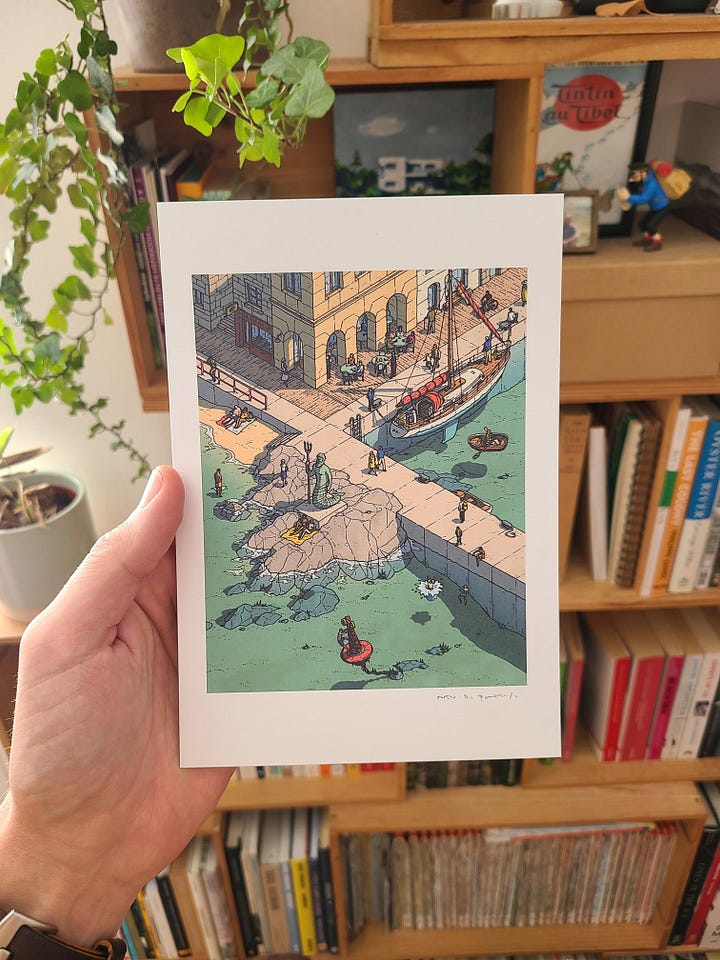
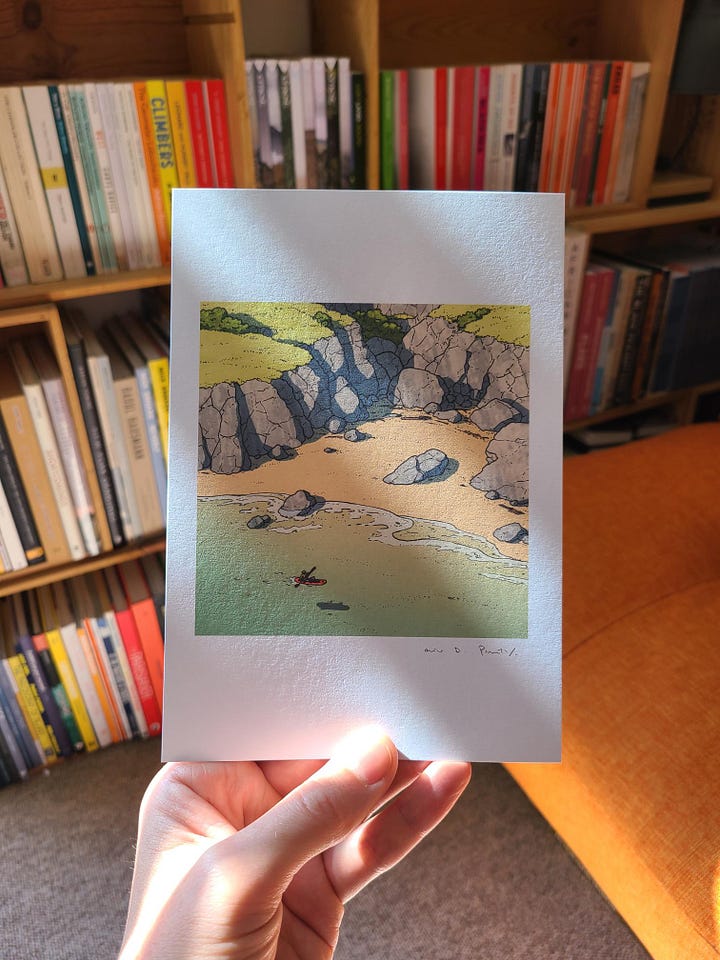
Avery Hill Exhibition.
Finally, if you need a date for your diary (to give life some structure), my publisher Avery Hill are having a big retrospective exhibition up in Harrogate this autumn. It will feature original artwork from myself and many of my stablemates from over the ten plus years they’ve now been going.
It looks set to be pretty exciting, and I'll probably have some more updates down the line, but for now, here’s the official poster, drawn by Kristyna Baczynski.
Did you spot Ada, Haika and Mallic from The Hard Switch?
It's strange seeing your characters draw by someone else’s hand. I really like it. It feels like they are real and independent enough that someone can have their own take. Makes them feel alive and in the world, which for me is a nice feeling.
Good to catch up. It's been a pleasure. See you all soon!
Owen D. Pomery.


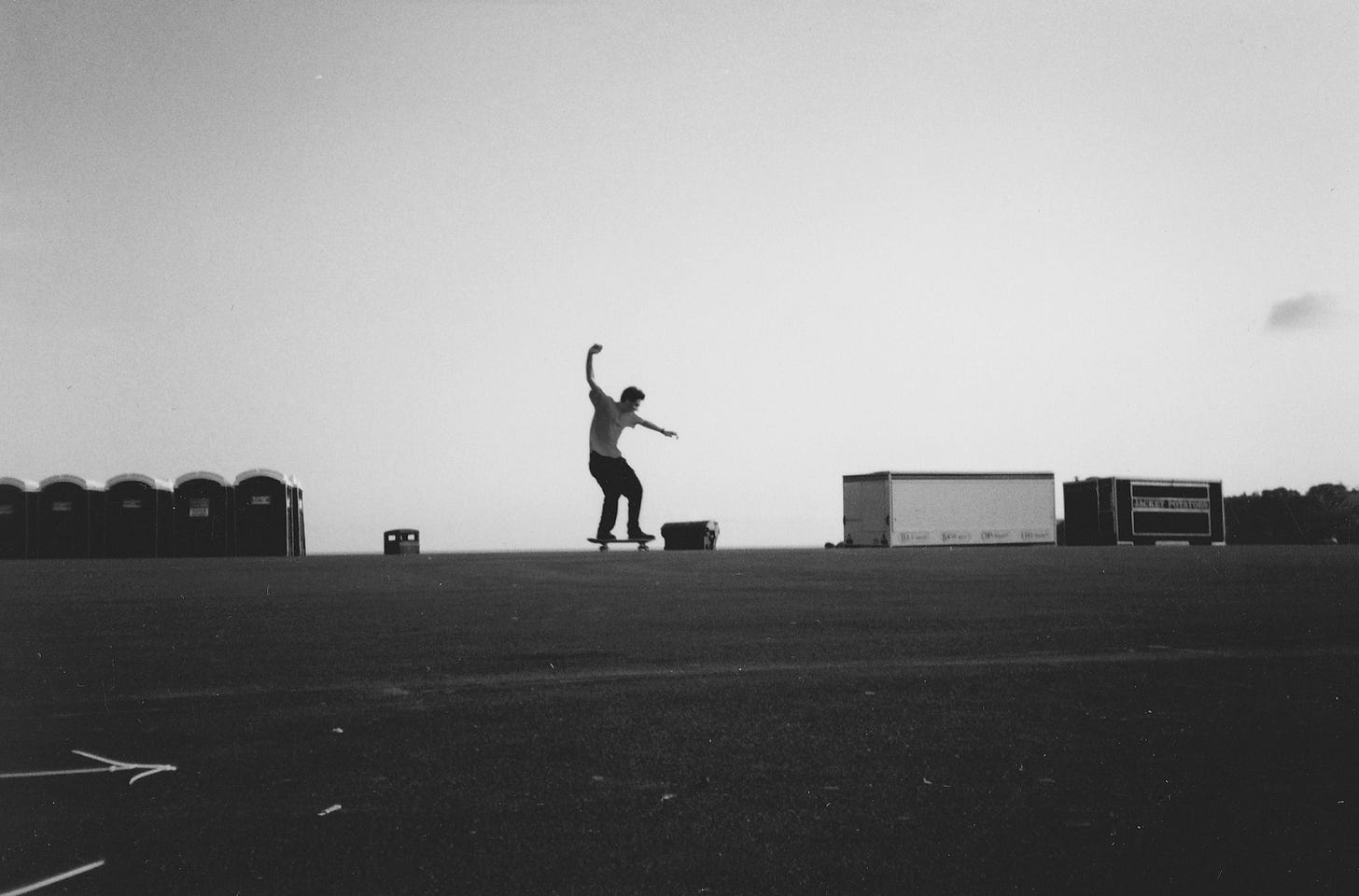
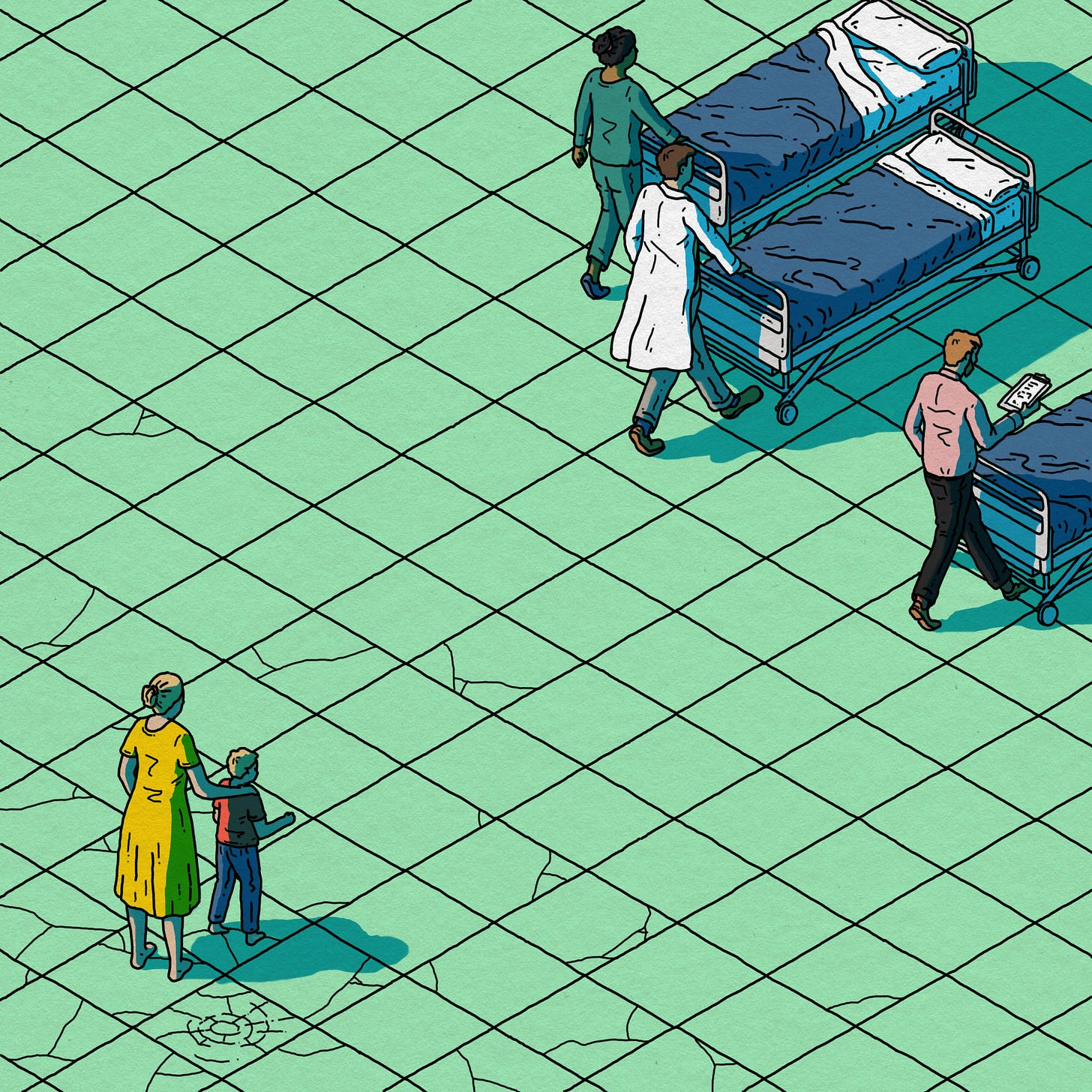
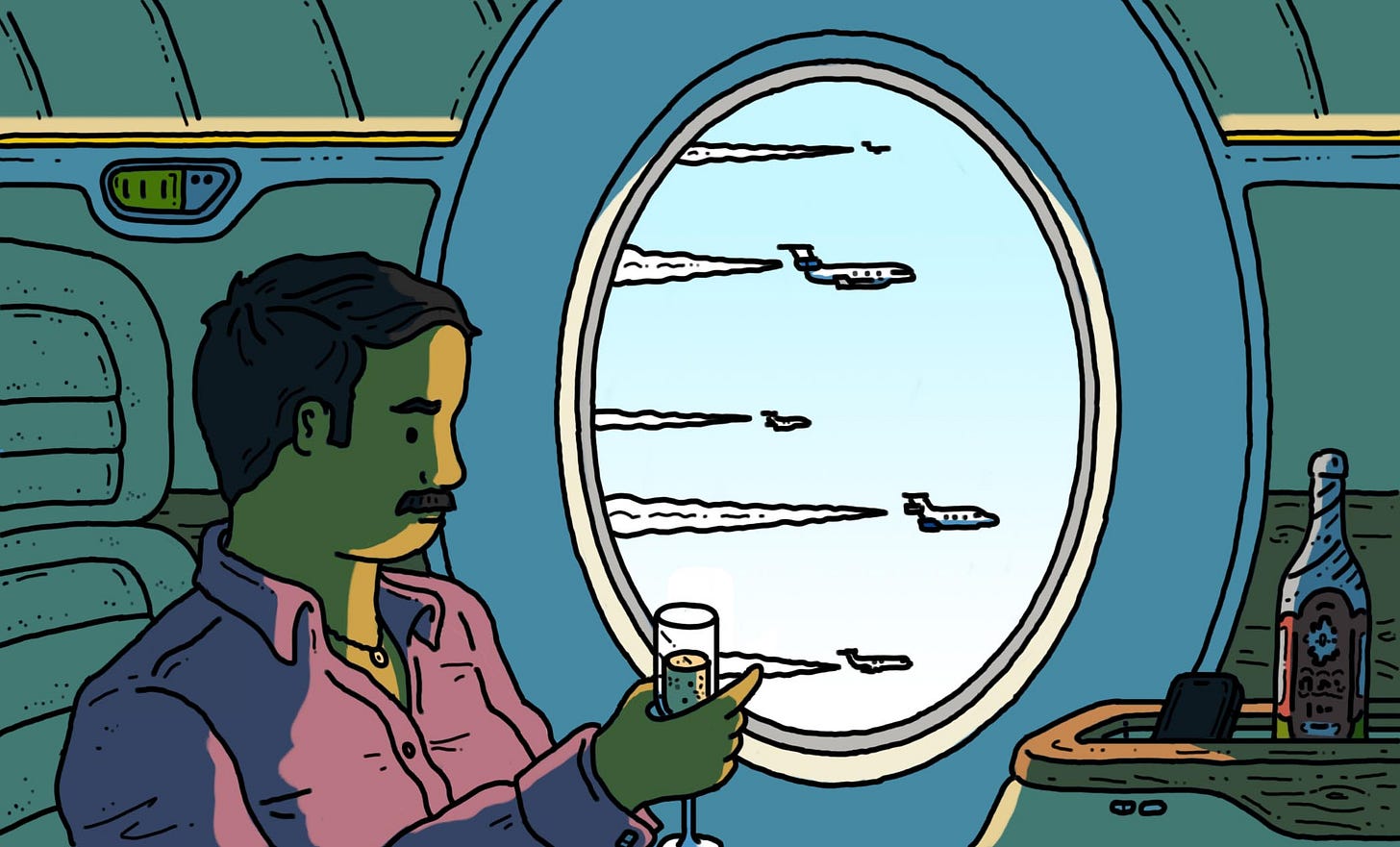
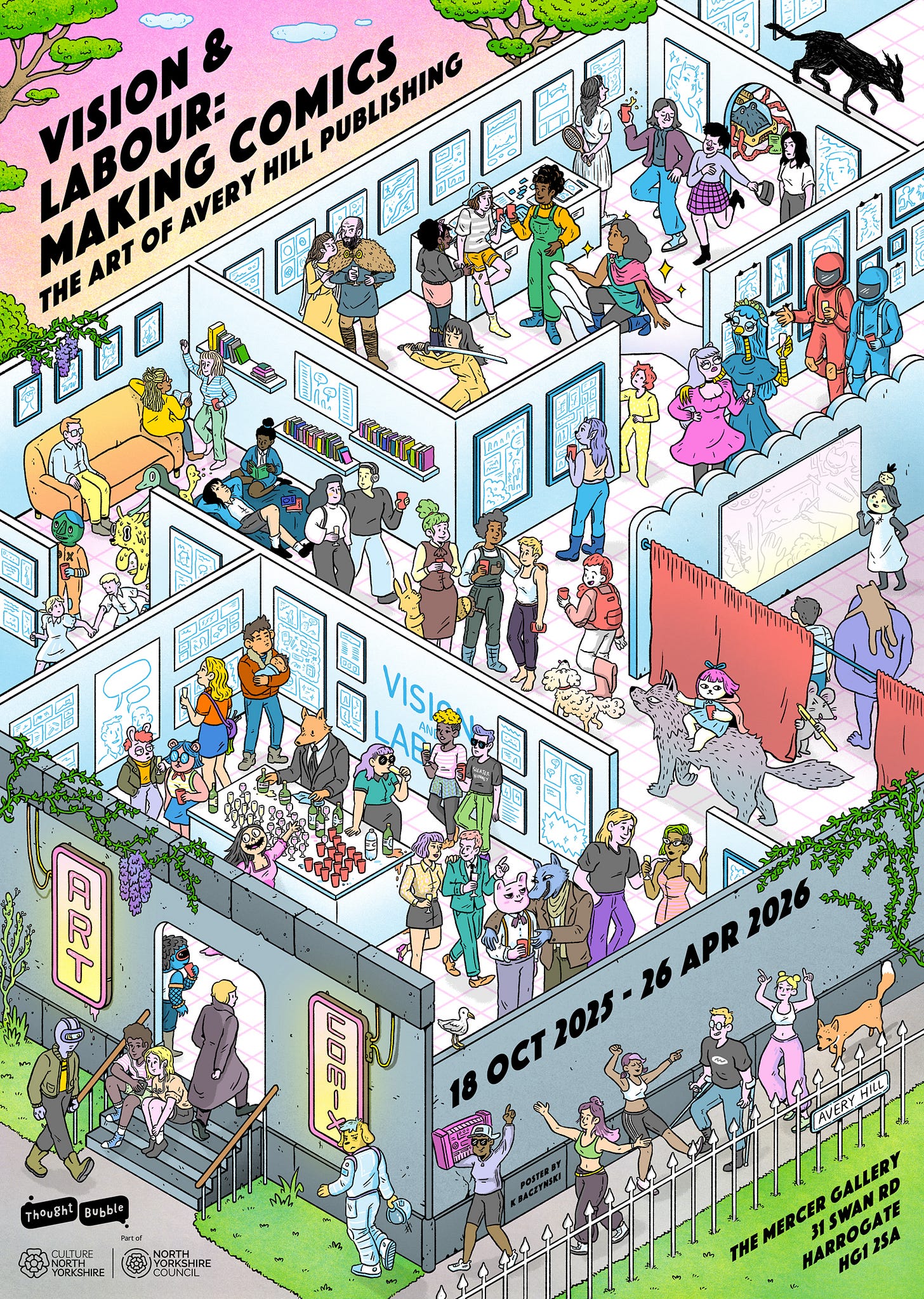

I find your Kiosk posts to be one of the more pleasant reminders of time passing.
Amazing 🧡